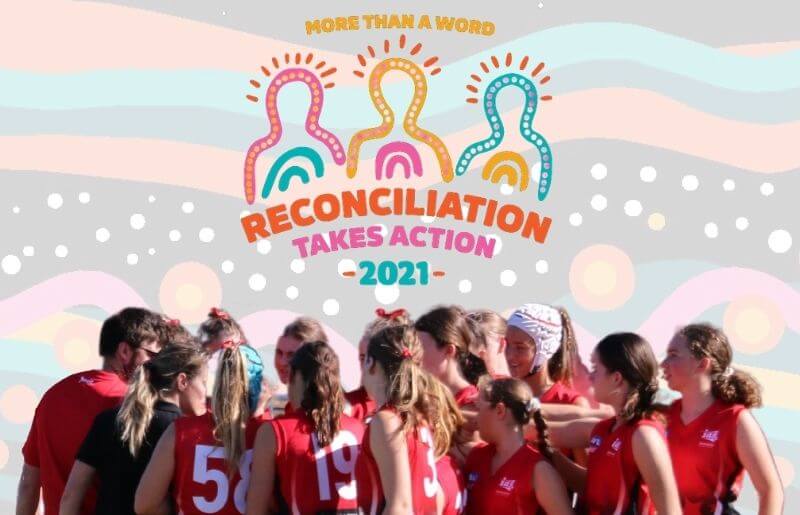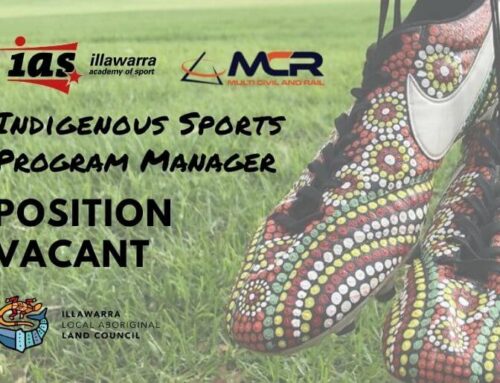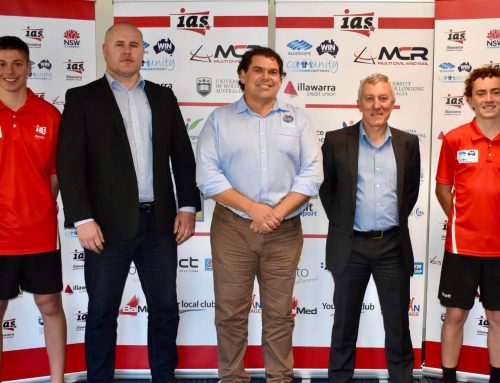
There are occasions when we would all love to change the world. And whilst the IAS might be limited – we might be able to change our little bit of the world. The emergence of Reconciliation Week has asked us to contemplate what such a week should mean for each individual and for the organisation. Reconciliation Week is a reckoning and a reflection as to our responsibility, as a community-based organisation, to better recognise, support and provide opportunity for our First Nations people.
“Reconciliation Week for us is about acknowledgement, acceptance and respect for our Nation’s First People,” Proud Dhungutti women and IAS MCR Indigenous Sports Program athlete, Savanah said.
“Reconciliation is a journey and works towards all Australians having a better understanding of my people’s histories and culture and changing social and cultural perceptions about Aboriginal people so that our nation can move forward into the future together,” Savanah continued.
“National Reconciliation Week means that we get to come together and try to fix what went on in the past by telling the truth about what happened in Australian History,” proud Wiradjuri woman and ISP athlete, Disaya said. “To me, this year’s theme means that it doesn’t just take a word to change what happened in the past, it takes time and wanting to step up to actually change and live together in harmony.”
With the support of MCR, the IAS has taken some steps to better recognize and support our Aboriginal scholarship holders through the MCR Indigenous Sports Program. But we need to continue the growth. We need to heighten the support and we need to look at ways in which we can enable leadership, enhance respect and celebrate our capacity to be stronger together because of our shared values.
In its first year of operation, the MCR Indigenous Sports Program has laid the groundwork for some quality growth and support. We have engaged all our current indigenous scholarship holders and provided some specific opportunities in strength & conditioning and sports psychology. We have reached out to the Clontarf Group and are about to run an induction / Talent ID day for young indigenous males. We will soon launch our Indigenous shirt – designed by one of the dads of our athletes. We will operate a cultural awareness training – initially designed for current indigenous athletes but with the hope of providing increased cultural awareness to all athletes.
So how can the Academy do more and lead the Illawarra Sporting community as a catalyst for change? We can better recognize the land we stand on as Indigenous land. We can more readily utilise the Indigenous language in recognizing our boundaries – the Dharawal, Yuin, Wiradjuri, Kamilaroi, Bundjalung, Dunghutti and Gumbayggir nations when we talk of our geographical boundaries. We can celebrate the culture that each of our athletes bring to the sporting arena. With permission, we can gain stronger insight as to the community that we represent. We can always be respectful and imbed strong values that celebrate diversity and inclusion. We might better recognize the history of our Illawarra – Shoalhaven – Wingecarribee region so that we know how to be the best that we can be into the future. Whatever steps we take into the future we will do so holding hands with our indigenous colleagues and building on the progress that the current athletes and administration have founded.
Watch our Reconciliation Week video here.


